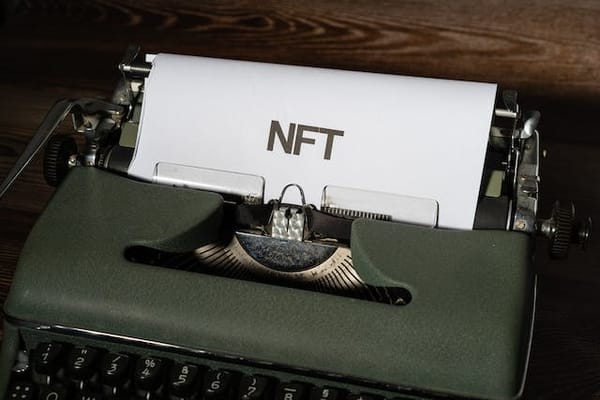10 Essential Personal Finance Tips for Beginners
Embark on your financial journey with confidence using our guide: 10 Essential Personal Finance Tips for Beginners. Unlock key insights for a solid foundation toward financial success

Personal finance can be a daunting concept for anyone, particularly for young adults venturing out into the world of independence and fiscal responsibility. The choices you make now can have a lasting impact on your financial well-being, and it’s crucial to start off on the right foot. This guide offers 10 indispensable tips to set you on the path to financial security, establish good habits, and work towards your financial aspirations — no matter how big or small.
Introduction
Navigating the choppy waters of personal finance is one of the most important skills for young adults to master. Luckily, the basics aren't complicated, yet they are profoundly impactful. Understanding how to manage income, expenses, savings, and investments at a foundational level can make a huge difference over a lifetime. It’s time to lay the groundwork for a secure financial future. So, let’s dive into the top 10 personal finance tips that every beginner needs to know.

1. Create a Budget
The first and most crucial step in managing your personal finances is creating a budget. A budget is like a financial roadmap; it helps you understand where your money is coming from and where it’s going. Start by tracking all your expenses for at least one month — every coffee, every movie ticket. This helps identify areas where you may be overspending and where you can cut back. Once you have a clear picture, set monthly and yearly financial goals based on your income and spending patterns. Remember, a budget is a living document that should be periodically reviewed and adjusted.
2. Build an Emergency Fund
Life is full of surprises, and not all of them are pleasant. An emergency fund acts as a financial shock absorber, providing a cushion against unforeseen expenses like car repairs, medical bills, or sudden unemployment. Aim to set aside at least three to six months' worth of living expenses in a high-yield savings account. This money should be easily accessible in the event of an emergency but also out of sight to avoid the temptation to dip into it for non-essentials.
3. Pay Off High-Interest Debt
Debt isn't inherently bad, but high-interest debt — such as credit card debt — can be a significant financial burden. Make it a priority to pay off these debts as quickly as possible. Start by paying more than the minimum payment each month, or consider consolidating your debt with a personal loan at a lower interest rate. Not only will you save money on interest payments, but you’ll also free up funds that can be put towards savings or investments.
4. Start Saving for Retirement
It’s never too early to start saving for retirement. Thanks to the power of compounding, the earlier you begin, the less you have to save each month to reach your retirement goals. If your employer offers a 401(k) plan, consider contributing enough to take advantage of any matching contributions they offer. At the very least, aim to invest around 15% of your pre-tax income towards retirement.
5. Understand Credit and Manage it Wisely
Building good credit is essential for securing favorable terms on loans and credit cards. Make sure to pay all your bills on time, keep credit card balances low, and avoid opening several new accounts at once. Be cautious with credit cards and use them responsibly — they can be a valuable financial tool, but they can also lead to debt if not managed wisely.

6. Set Financial Goals
Establishing clear financial goals can provide focus and motivation. Whether it’s saving for a down payment on a house, paying off student loans, or taking that dream vacation, having specific goals in mind helps you stay on track and measure your progress. Visualize your goals, break them down into manageable tasks, and celebrate your achievements along the way.
7. Invest in Yourself
Continuously investing in your own education and skill development is one of the best investments you can make. Seek out additional training, pursue higher education, or learn a new skill that could lead to increased earnings. The more you invest in yourself now, the more you’ll be able to invest in your future.
8. Diversify Your Investments
When you start investing, it’s important not to put all your eggs in one basket. Diversification can help manage risk and improve the chances of earning a higher return. Spread your investments across different asset classes like stocks, bonds, mutual funds, and real estate. This way, if one investment performs poorly, you'll have others that can potentially offset those losses.
9. Protect Your Assets
As you begin to accumulate wealth, it’s essential to protect it. Insurance plays a key role in safeguarding your financial future. Consider health insurance, renter’s/homeowner’s insurance, life insurance, and disability insurance. Additionally, estate planning, such as drafting a will or establishing a trust, ensures that your assets are distributed according to your wishes.
10. Seek Professional Advice
Financial literacy is an ongoing process, and there’s always more to learn. Don't hesitate to reach out to a financial advisor if you have questions or need help with more complicated financial matters. A professional can provide guidance tailored to your individual circumstances and help you optimize your wealth-building strategies.
Conclusion
Taking control of your personal finance can seem overwhelming, but it’s a journey worth embarking upon. The steps outlined above are just the beginning of a lifelong process of learning, adapting, and growing. By incorporating these ten tips into your financial routine, you’ll be creating a solid foundation for a successful and secure future. Remember, the most important investment you can make is in yourself. So, stay curious, stay diligent, and never stop improving your financial knowledge and habits. Your future self will thank you.



